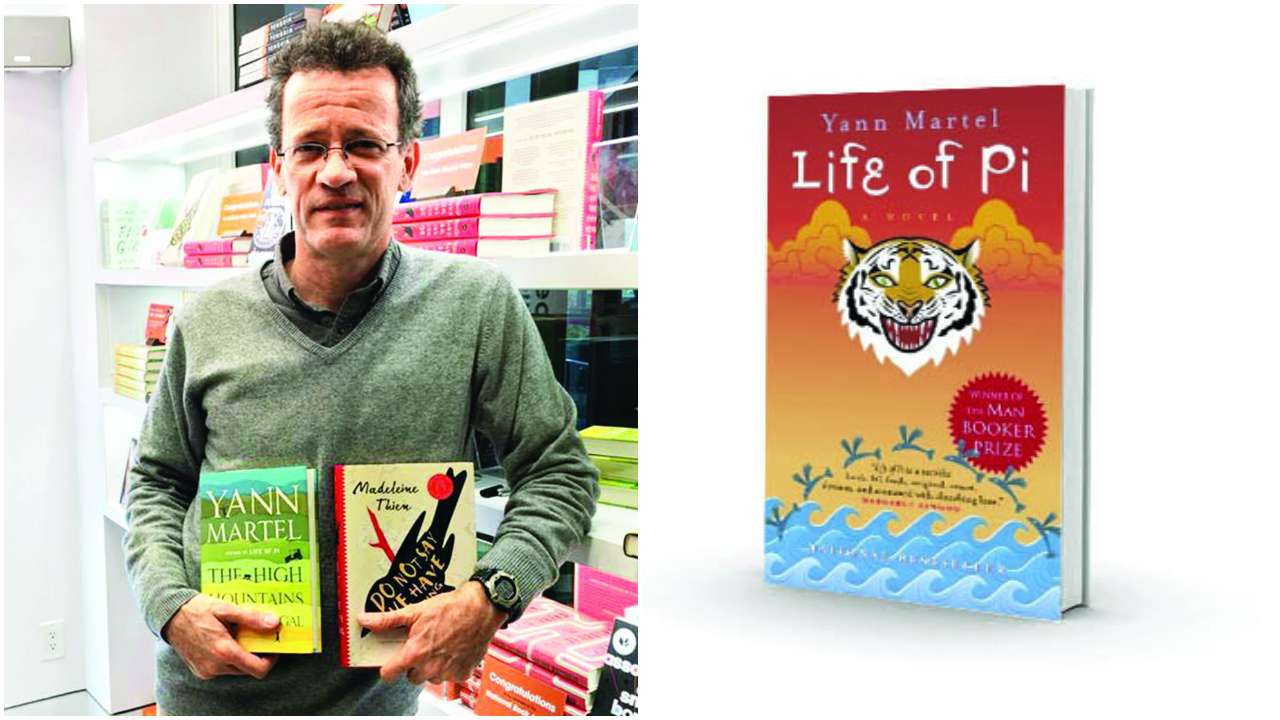
Over 12 million copies sold worldwide, Man Booker Prize winner, made into a major film – Life of Pi by Yann Martel is one of most successful novels of recent times. Martel will be in Jaipur this year speaking about, among other things, life ‘Before And After Pi’ (10am, Jan 27). His next novel, he tells Gargi Gupta in this email interaction, will be set around the Trojan War. Edited excerpts:
The film has its strengths. The visuals, for example, are amazing. And the music is lovely. But it’s hard to adapt a 300-plus page novel to the screen. A lot has to be cut. In this case, much of the rumination of the story had to go. So I think of the film as a good companion piece to the book, a complement. Read the book first and then watch the film.
I use animals because they’re good story vehicles. An animal can be both what it is and a symbol. That’s very useful for a storyteller. We tend to be cynical about our own species, but less so about animals. We imbue them with innocence, we look at them with a sense of wonder. Once again, that’s very useful for a storyteller.
I hoped to change him. That’s what great books do. Stephen Harper was one of those small-minded, unimaginative conservatives who think they have an understanding of the ‘real’ world. In fact, he understands nothing. A vision of the world that does not factor in ideas, aspirations, dreams, and other fluffy nonsense is a vision of nothing. So I thought I might open him up by sending him short, great books. He never wrote back to me personally, not once.
I don’t practice any particular religion, but I respect and admire the religious imagination, that capacity to see the divine in the material world.
A lot of readers have written to me over the years, and I wrote back to every single one. Most often they shared their interpretation of the novel, what they thought of Richard Parker, what they thought was the “better story”. Many of the letters are touching. There’s pain and suffering in Life of Pi and many readers shared how the novel helped them deal with moments of pain and suffering in their lives.
I love Agatha Christie. Rarely have I seen aspiration so perfectly matched with execution. Crime fiction is very hard to pull off, since you always have to be aware of what the reader might understand or notice. You must never reveal too much or too little. In her best novels, she got it perfectly right. And there is that curious similarity with the Gospels. But no, I’ve never tried my hand at writing a murder mystery. Too hard. I’ll stick to easy literary fiction.
I don’t have many ideas so I might as well make them last. I work slowly and carefully. I love being inside my stories, building them one stone at a time, like those medieval cathedrals of Europe. As for the muse, I take what she gives me and then do research, which often leads to more visitations of the muse, which leads to more research, and so on. It’s a beautiful process, the creation of a work of art with words.
A novel set during the Trojan War. It will be a story told in fragments from antiquity in the top half of the page, with the commentary of a modern-day scholar appearing in the bottom half. I was attracted to the idea of a dialogue between a foundational myth of the West and a mind of today. I’m positing an alternative vision of the Trojan War, one eventually supplanted and repressed by the Homeric.
I spent over a year in India over the course of three trips in the late 1990s. I was that ubiquitous sight: the Western backpacker. I travelled all over, from Kashmir to Kanyakumari. I loved it. India is the most dazzling country I’ve ever seen, a place of all possibilities, from the greatest dreams to the most appalling nightmares.